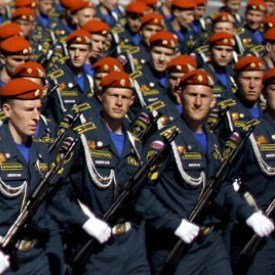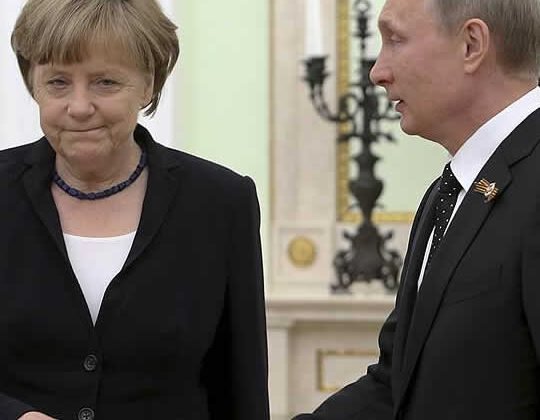(The National Interest) (Co-authored with Michael Kofman) May is a busy time in Moscow, from tanks drilling on the city’s main thoroughfares in preparation for the annual World War II victory parade to the cavalcade of defense ministers flying in for Russia’s annual Moscow Conference on International Security (MCIS). Since 2012, the Russian Ministry of Defense has endeavored to host its own showpiece conference on international security, an homage to the well-known Munich Security Conference in Germany. Russia’s MCIS is a mix of official diplomacy, international spectacle, and a reason for Russia’s national-security elite to meet with the defense ministers of what are chiefly non-Western countries. In recent years it has become institutionalized, a forum for Russia to advance its policy agenda, present the party line on new issues in international security and, of course, rehash familiar grievances.
Read More © The National Interest
– – – – – – –
Related post on the Russian Military Reform blog:
Mike Kofman and I wrote up our joint impressions of the 2017 MCIS conference for The National Interest. Here’s a taste of the key points.
This year the conference attempted to balance a confrontational tone with offerings of cooperation, in particular on counterterrorism, which was the overall theme for the event. But judging from much of the discussion, the real topic should have been information warfare, which not only made its debut at this conference, but permeated many of the talking points. “Fake news,” “post-truth world” and numerous other terms in the modern discourse on information warfare were sprinkled throughout speeches, with a separate panel dedicated to the topic. “Information war” had clearly arrived in a big way, and not just because nobody could stop looking at their smartphone during the conference.
MCIS 2017 proved another interesting foray into the minds of Russia’s national-security aristocracy, with a veritable lineup of who’s who in terms of leadership, including Nikolai Patrushev, Sergei Shoigu, Sergey Lavrov, Alexander Bortnikov, Sergei Naryshkin and, of course, Chief of the General Staff Valery Gerasimov. However, from the very opening it was clear that Russian leadership was somewhat out of practice when it came to speaking about a cooperative agenda, and while their rancor over long-standing problems with the West came through, the willingness to work together was much less apparent. In general, they had trouble holding back sincerely held sentiments on NATO’s activities in Europe, missile defense and the United States’ foreign policy writ large, which got in the way of the desire to extend an olive branch to the West.
Despite the fire and brimstone, the Russian leadership did signal a desire to reengage with the United States, while compartmentalizing other issues in the relationship, but it was presented on a take-it-or-leave-it basis. Moscow did not come off as desperate to cooperate, but if anything as more firm. Fighting ISIS together was the focal point of Russian commentary on prospective cooperation with the United States, but these points came with reproaches on violating countries’ sovereignty, and the recent cruise missile strike in Syria, which was termed a crude violation of international law. It seemed that Russian officials were trying to speak from a position of strength.











